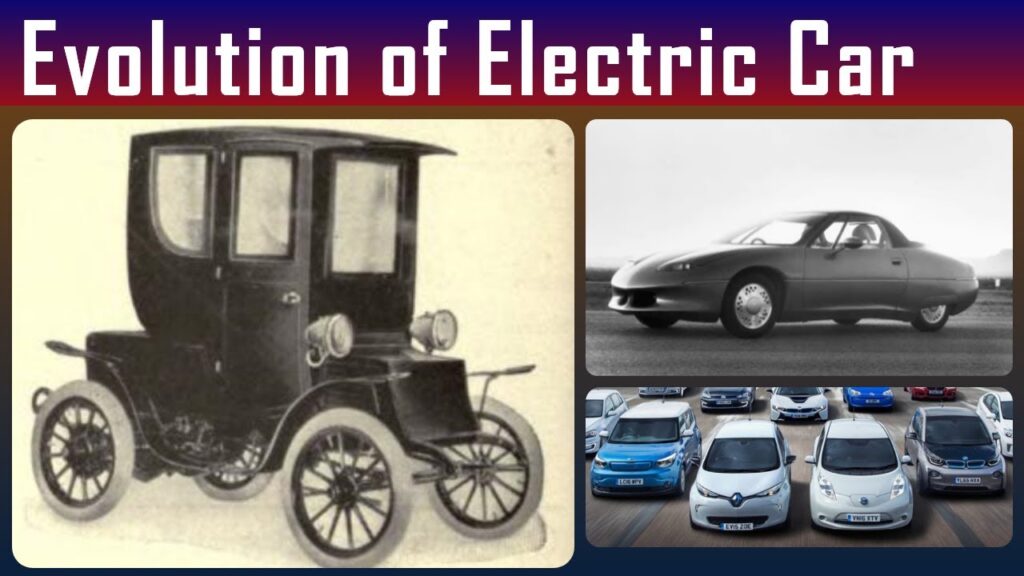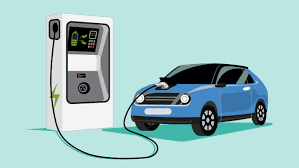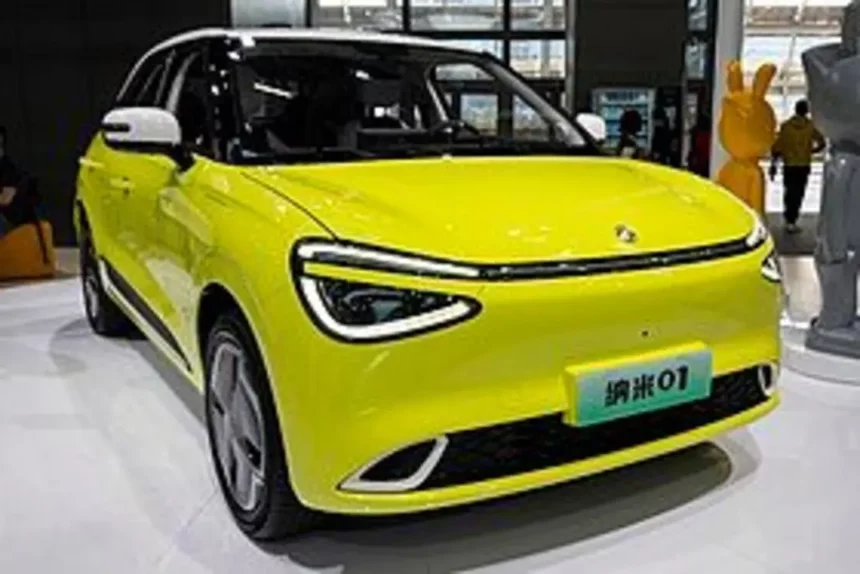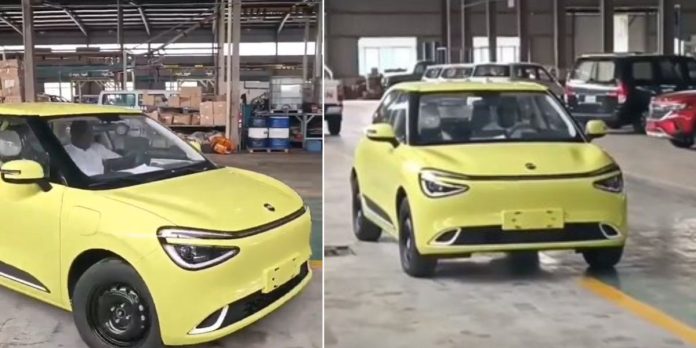The Rise of Electric Vehicles: From History to Innoson Vehicle Manufacturing’s Landmark Unveiling
Electric vehicles (EVs) have swiftly transitioned from niche innovations to critical components of the global shift towards sustainable transport.
While EVs may seem like cutting-edge technology today, their history stretches back over a century.
This article delves into the evolution of electric cars, their undeniable benefits to society and the environment,
and the recent milestone achieved by Innoson Vehicle Manufacturing (IVM), a Nigerian car company, as it unveils its first electric vehicle.
The History of Electric Cars: A Journey to Sustainability
The evolution of electric cars dates back to the early 19th century, much earlier than many realize.
While gasoline-powered vehicles dominate the narrative of the automotive industry, electric cars were once a frontrunner.

- Early Beginnings (1828-1880s)
The earliest reference to an electric vehicle dates back to 1828 when Hungarian engineer Ányos Jedlik developed a small-scale model powered by a simple electric motor. However, it wasn’t until the late 1800s that viable electric cars began to emerge, particularly with the work of inventors like Thomas Davenport and Robert Anderson. In the 1870s and 1880s, early EVs started appearing in Europe and the United States, showcasing the possibility of battery-powered transportation. - The Golden Age of Electric Cars (1890-1920s)
The late 19th century saw a surge in the development of electric vehicles. By the 1890s, they had become a popular mode of transport in major cities. Notable figures like William Morrison introduced the first practical electric vehicle in the U.S. in 1891. These cars were quieter, smoother, and didn’t produce the noxious fumes associated with gasoline-powered vehicles.In fact, by 1900, electric cars were outselling gasoline-powered cars in America, thanks to their ease of use and lack of manual gear-shifting. However, as the internal combustion engine (ICE) improved in performance and affordability (due in part to Henry Ford’s mass production of the Model T), electric cars began to lose market share. - The Decline and Rebirth (1930s-1990s)
With the advent of the gasoline-powered car and the construction of expansive road networks, the demand for vehicles that could travel long distances grew. Electric vehicles, constrained by battery technology, saw a significant decline. By the 1930s, they had all but disappeared from mainstream markets.The interest in EVs didn’t resurface until the late 20th century, driven by growing concerns over fossil fuel depletion and environmental sustainability. The 1973 oil crisis, combined with advances in battery technology, renewed interest in alternative fuel vehicles. Companies like General Motors and Toyota began experimenting with electric and hybrid vehicle models. Toyota’s release of the Prius in 1997—a hybrid vehicle—was a watershed moment for electric mobility. - The Modern EV Revolution (2000s-Present)
Fast-forward to the 2000s, and companies like Tesla redefined what electric cars could achieve. Tesla’s release of the Roadster in 2008 showcased that electric vehicles could not only be environmentally friendly but also stylish, fast, and desirable. Advances in lithium-ion battery technology increased the range of electric vehicles, while governments around the world began introducing incentives to encourage EV adoption.Today, electric vehicles are a key pillar of the global movement toward reducing greenhouse gas emissions. Brands across the globe, from Tesla to Nissan, Ford, and BMW, have embraced electric vehicle production, and countries like Norway have set ambitious goals for phasing out petrol-powered vehicles.

Benefits of Electric Vehicles
The rising popularity of electric vehicles is driven not just by technological advancements but also by the substantial benefits they offer, both for individuals and society at large.
- Environmental Benefits
One of the most significant advantages of electric vehicles is their contribution to reducing carbon emissions. According to the International Energy Agency (IEA), road transport accounts for over 15% of global energy-related emissions. EVs, which produce zero tailpipe emissions, are a key solution to this problem. By transitioning to electric cars, cities can drastically cut down on pollutants like nitrogen oxides and particulate matter, leading to cleaner air and healthier communities. - Reduced Reliance on Fossil Fuels
Traditional vehicles rely on gasoline and diesel, which are finite resources. Electric vehicles, on the other hand, can be powered by renewable energy sources like solar, wind, and hydropower. As the world continues to invest in clean energy infrastructure, EVs could one day be charged entirely from renewable energy, further reducing humanity’s reliance on fossil fuels. - Lower Operating Costs
Electric cars are generally cheaper to operate than their gasoline-powered counterparts. Charging an electric vehicle is often less expensive than refueling a car with gasoline, especially in countries with high fuel costs. Additionally, electric cars have fewer moving parts, meaning they require less maintenance, reducing the overall cost of ownership. - Enhanced Energy Efficiency
Electric vehicles are far more energy-efficient than internal combustion engine vehicles. EVs convert about 60% of the electrical energy from the grid to power the wheels, compared to the 20% energy efficiency of gasoline-powered cars. This means that less energy is wasted during operation. - Government Incentives and Policies
Many governments worldwide are offering incentives to encourage the adoption of electric vehicles. These include tax credits, rebates, reduced registration fees, and access to carpool lanes. By making electric cars more affordable and convenient, governments are helping accelerate the shift to cleaner transportation.

The History of Innoson Vehicle Manufacturing (IVM): Nigeria’s Automotive Pioneer
Innoson Vehicle Manufacturing, often referred to as IVM, is a leading Nigerian car manufacturer based in Nnewi, Anambra State.
The company has earned its place as a trailblazer in Africa’s automotive industry, producing locally made vehicles that cater to the African market.
- Founding of Innoson Vehicle Manufacturing
IVM was founded by Innocent Ifediaso Chukwuma in 2007. His vision was to reduce Nigeria’s dependence on foreign automobiles and to create jobs in the local economy. Over the years, Innoson has gained a reputation for producing durable, affordable vehicles, including cars, buses, and trucks, suited for the African terrain. - Expanding the Nigerian Automotive Industry
Innoson made history by being the first indigenous vehicle manufacturer in Nigeria. The company gained traction due to its commitment to producing affordable vehicles tailored to the Nigerian market, incorporating locally sourced materials. This initiative has not only promoted local content but also positioned Innoson as a key player in Nigeria’s industrialization efforts. - IVM’s Impact on Job Creation
The establishment of IVM has had a significant impact on the Nigerian economy, particularly in the South-East. By producing vehicles locally, Innoson has created thousands of jobs, from factory workers to engineers and administrative personnel. This has helped alleviate unemployment and contributed to the region’s economic development. - Innoson’s First Electric Vehicle: A Major Milestone
In September 2024, Innoson Vehicle Manufacturing marked a major milestone with the unveiling of its first locally produced electric vehicle. This development is a testament to the company’s commitment to innovation and sustainability. According to Innoson spokesperson Cornel Osigwe, the initial batch of IVM electric cars has been completely sold out, highlighting the high demand for eco-friendly vehicles in Nigeria.Osigwe mentioned that since the video of the electric car was posted, there has been an overwhelming response from potential customers, with many offering upfront payments. Although pricing and production details have not been fully disclosed, this accomplishment signals Innoson’s readiness to compete in the growing electric vehicle market, not just in Nigeria but potentially across Africa.

The Nigerian Government’s Push for Energy Switching
The unveiling of IVM’s electric vehicle aligns with the Nigerian government’s broader efforts to encourage energy switching from fossil fuels to more sustainable energy sources.
The government has been exploring various initiatives to reduce the country’s dependence on petrol-powered vehicles, including policies to promote electric vehicle adoption.
While Nigeria faces challenges in terms of infrastructure—such as the need for widespread charging stations and reliable electricity—Innoson’s electric vehicle marks a significant step in the right direction.
It demonstrates that with the right investments and government support, Nigeria can be a key player in the global electric vehicle market.

Conclusion: A Bright Future for Electric Vehicles in Nigeria
The unveiling of Innoson Vehicle Manufacturing’s first electric car is a landmark achievement for the Nigerian automotive industry and a plus to the evolution of electric cars.
It signifies that the country is not only embracing technological advancements but also playing a role in the global movement towards sustainability.
The history of electric vehicles shows that they have come a long way—from their early beginnings in the 19th century to their modern-day resurgence.
Today, electric vehicles offer numerous benefits, from reducing carbon emissions to lowering operating costs.
As Nigeria continues to invest in green technologies, the future of electric vehicles in the country looks bright, with Innoson leading the charge.




Leave a Reply